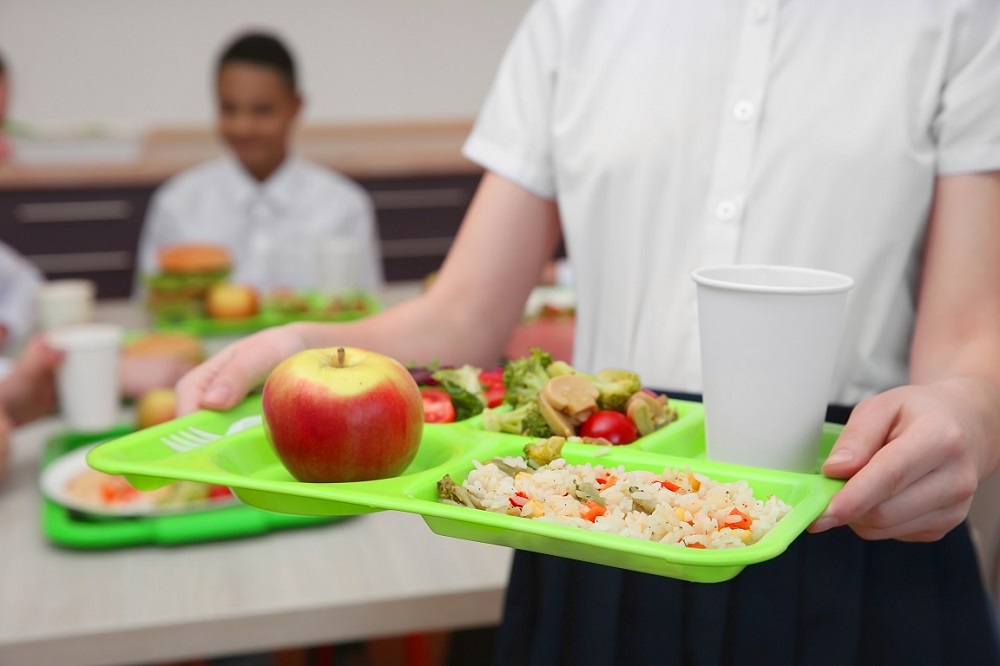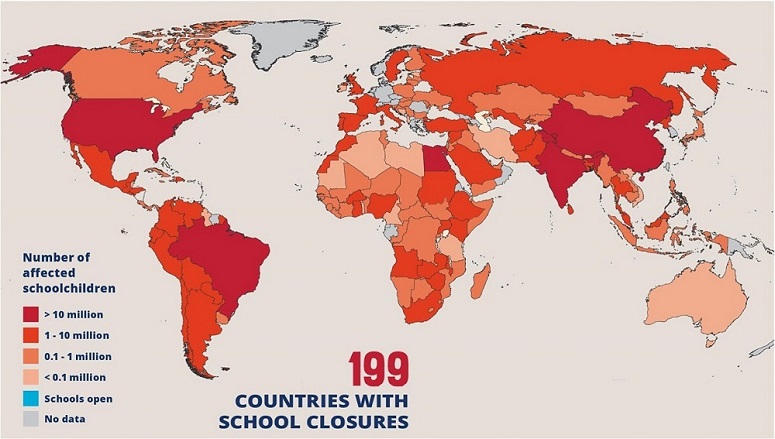Agriculture and fisheries events
How to make better policies for school meals

The provision of school meals by governments is an important intervention for meeting the Sustainable Development Goals (SDGs), as governments look to give children worldwide equal opportunities to maximise their education regardless of their families’ economic situation.
School meals policies achieve multiple policy objectives, including those related to the triple challenge facing food systems: ensuring food security and nutrition for a growing population, supporting the livelihoods of millions of farmers and others in the food chain, and doing so in an environmentally sustainable way.
Many countries have implemented school meal programmes – in some cases, these programmes have been in place for decades.
A key goal of these programmes is to reduce food insecurity for school students and to address health inequalities that impact children's well-being, behaviour and ability to learn. In addition, school meal programmes contribute to strengthening support services to families.
School meals and COVID-19
As many as 161 countries have school feeding policies. However, in March 2020, as schools around the world closed their doors to limit the spread of the COVID-19 infection, more than 1.5 billion children were suddenly deprived of schooling, resulting in 370 million children missing out on the nutritious school meals that they and their families relied upon. As shown in the map below, this was the experience in rich and poor countries alike, and brought global recognition to the important social protection role that school meals play in supporting the health and wellbeing of vulnerable children and adolescents.

Source: WFP global monitoring of school meals during COVID-19 school closures (data as of 14 April 2020)
In response, at the United Nations Food System Summit (UNFSS) held in September 2021, nearly 60 countries - led by France and Finland - launched the School Meals Coalition: Nutrition, Health and Education for Every Child with the goal of “a healthy meal every day for every child”.
The Research Consortium for School Health and Nutrition is the evidence-generating arm of the Coalition; its Secretariat is hosted by the London School of Hygiene and Tropical Medicine (LSHTM).
The Research Consortium is establishing a 10-year research agenda, coordinating the efforts of academia, think tanks and research partners on four Communities of Practice, focusing on impact and evidence, analytics and metrics, good examples and nutrition measurement. As part of the Good Examples Community of Practice, the Research Consortium invites country representatives to develop case studies on their national school meal programmes.
On 10 February 2022, the OECD, a knowledge partner to the UNFSS, hosted a webinar in support of the Coalition and the newly established Research Consortium.
The theme of the webinar was how to make better policies for school meals. The webinar was informed by the OECD’s contribution to the UNFSS process, Making better policies for food systems, along with ongoing work on overcoming evidence gaps related to food insecurity and food assistance programmes.
Making better policies for food systems requires coherent policies whereby government agencies and stakeholders work together to maximise synergies and minimise trade-offs across the triple challenge facing food systems. Consistent with its emphasis on policy coherence, the OECD showcased its multidisciplinary research relevant to school meal policies.
School meals, education and nutrition
Findings from the OECD’s Education Directorate indicated that providing healthy and nutritious options for students can be a cost-effective way of boosting academic performance. Healthy and balanced school meals can target nutrient deficiencies that, if left untreated, can impair students’ ability to focus and retain information. Eating lunch at school has been positively associated with diet quality, food security and academic performance. These effects can be more pronounced as school meals programmes incorporate healthier options on their menus, moving away from low-budget and highly processed foods.
Well-designed and strategically implemented government procurement programmes consistent with the OECD Recommendation on Public Procurement can play an important role in ensuring the quality and sustainability of food for school meals. The livelihoods of farmers, food producers and those working along the food supply chain can be enhanced by school meal programmes, which generate demand and employment. Country experts from Chile, Finland and Japan intervened during the webinar to highlight how the curriculum in their countries incorporates presentations by farmers to students to enhance their knowledge of how food is produced. Environmental and health outcomes can also be enhanced with school meals via repeated exposure to unfamiliar foods. Many families tend to choose “safe” foods, which are often highly palatable and processed. Even in developed countries, many people do not eat the recommended five-a-day serving of fruits and vegetables for optimal nutritional outcomes.
Early food experiences are predictive of nutrition and eating behaviours later in life. Exposing children to healthy options at school can especially help the most disadvantaged increase their consumption of healthy foods in childhood and later on. This is particularly important as countries grapple with worrying trends in obesity, which has significant economic consequences. It is estimated that obesity-related diseases will claim more than 90 million lives in OECD countries in the next 30 years, with life expectancy reduced by nearly 3 years. Obesity and its related conditions also reduce GDP by 3.3% in OECD countries and exact a heavy toll on personal budgets, amounting to USD 360 per capita per year.
School meals and evidence gaps
A reoccurring theme in discussions was the missing data needed to measure the actual performance of school meal policies. For instance, the OECD’s Child Well-Being Unit highlighted that, while there is plenty of evidence showing that child poverty -- broadly defined as a lack of family income and material resources -- has multiple impacts on child well-being and development, most countries are not well equipped with the statistics needed to assess the depth of the issues. Official statistics on childhood food insecurity often underestimate the problem, and therefore the value of policies promoting school meals.
Efforts to monitor and evaluate the efficiency of school meal programmes have seen some countries develop indicators, including on welfare, health and educational outcomes, and acceptance and attendance by children. But information on the costs of the programmes in relation to achieving these goals is missing, an important evidence gap in the overall assessment of the effectiveness of school meals programmes. Helping OECD members to address the extensive evidence gaps on food systems in order to make better policies is the focus of OECD work currently underway.
More generally, the OECD Food Systems team will continue to support the School Meals Coalition: Nutrition, Health and Education for Every Child and its Research Consortium by sharing information, data and analysis and its multidisciplinary expertise.
Related Documents